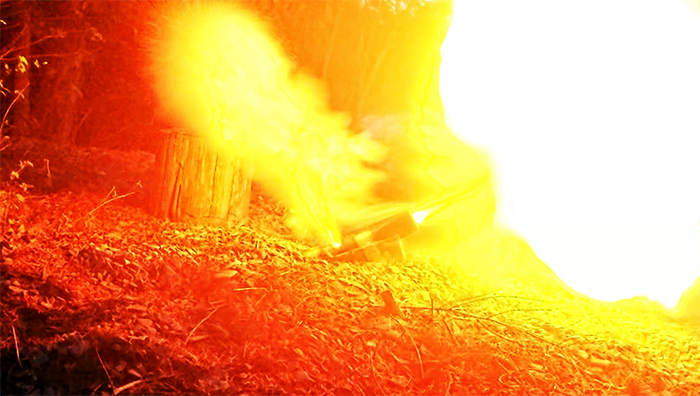In the following dispatch to the New York Times, Samuel Wilkeson gives an account of the “Confederate bombardment” at Gettysburg, July 3, 1863—probably the largest artillery bombardment of the entire Civil War. He wrote it beside the body of his son, killed in battle the previous day:
Who can write the history of a battle whose eyes are immovably fastened upon a central figure of transcendingly [sic] absorbing interest—the dead body of an oldest born, crushed by a shell in a position where a battery should never have been sent, and abandoned to death in a building where surgeons dared not to stay?…
For such details as I have the heart for. The battle commenced at daylight, on the side of the horseshoe position, exactly opposite to that which Ewell had sworn to crush through. Musketry preceded the rising of the sun. A thick wood veiled this fight, but out of the leafy darkness arose the smoke and the surging and swelling of the fire.…
Suddenly, and about ten in the forenoon, the firing on the east side and everywhere about our lines ceased. A silence of deep sleep fell upon the field of battle. Our army cooked, ate and slumbered. The rebel army moved 120 guns to the west, and massed there Longstreet’s corps and Hill’s corps to hurl them upon the really weakest point of our entire position.
Eleven o’clock—twelve o’clock—one o’clock. In the shadow cast by the tiny farmhouse, sixteen by twenty, where General Meade had made his headquarters, lay wearied staff officers and tired reporters. There was not wanting to the peacefulness of the scene the singing of a bird, which had a nest in a peach tree within the tiny yard of the whitewashed cottage. In the midst of its warbling a shell screamed over the house, instantly followed by another and another, and in a moment the air was full of the most complete artillery prelude to an infantry battle that was ever exhibited. Every size and form of shell known to British and to American gunnery shrieked, moaned, whirled, whistled, and wrathfully fluttered over our ground.…Through the midst of the storm of screaming and exploding shells an ambulance, driven by its frenzied conductor at full speed, presented to all of us the marvellous [sic] spectacle of a horse going rapidly on three legs. A hinder one had been shot off at the hock.…During this fire the houses at twenty and thirty feet distant were receiving their death, and soldiers in Federal blue were torn to pieces in the road and died with the peculiar yells that blend the extorted cry of pain with horror and despair. Not an orderly, not an ambulance, not a straggler was to be seen upon the plain swept by this tempest of orchestral death thirty minutes after it commenced.
posted by: Aaron Bragg | category: random thoughts | make a comment

